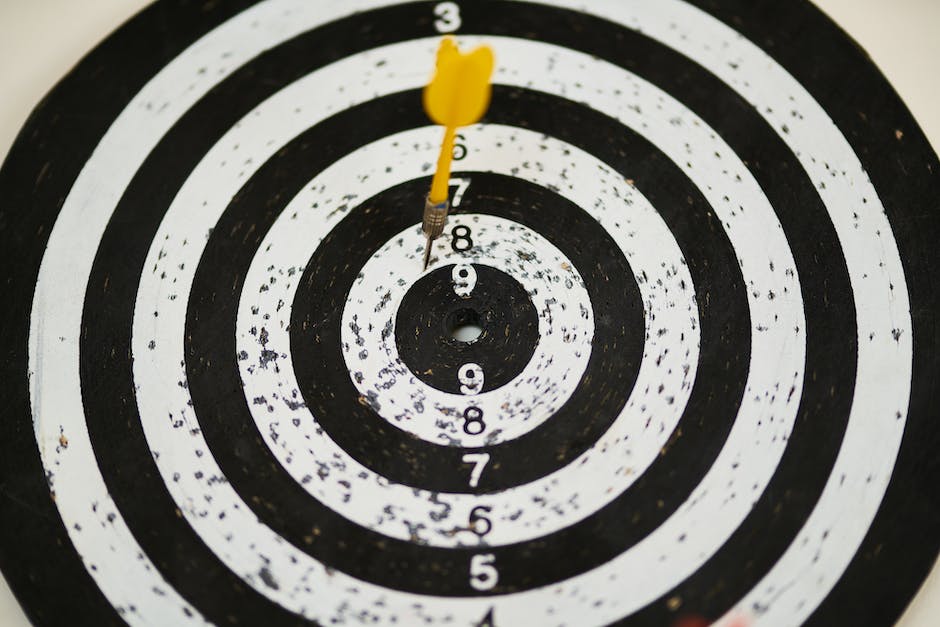Table of Contents
- Introduction
- Importance of Setting Clear Goals for Professional Development
- Strategies for Creating SMART Goals
- Overcoming Obstacles in Achieving Professional Development Goals
- Tracking Progress and Adjusting Goals as Needed
- Developing a Personalized Professional Development Plan
- Celebrating Successes and Setting New Goals for Continued Growth
- Q&A
- Conclusion
“Empower your career with strategic goal-setting and achievement.”
Introduction
Mastering Professional Development: Setting and Achieving Goals is a crucial aspect of career growth and success. By establishing clear and achievable goals, individuals can map out their path to success and take proactive steps towards achieving their objectives. In this guide, we will explore the importance of goal setting in professional development and provide practical tips and strategies for setting and achieving goals effectively.
Importance of Setting Clear Goals for Professional Development
Professional development is a crucial aspect of career growth and success. It involves continuously improving one’s skills, knowledge, and abilities to stay relevant in a rapidly changing work environment. Setting clear goals for professional development is essential for achieving success in this endeavor.
One of the key reasons why setting clear goals is important for professional development is that it provides a sense of direction and purpose. Without clear goals, individuals may find themselves aimlessly drifting from one task to another without a clear focus on what they want to achieve. By setting specific, measurable, achievable, relevant, and time-bound (SMART) goals, individuals can create a roadmap for their professional development journey.
Setting clear goals also helps individuals to prioritize their efforts and resources. With a clear understanding of what they want to achieve, individuals can allocate their time, energy, and resources towards activities that will help them reach their goals. This focus on priorities can prevent individuals from getting distracted by less important tasks and ensure that they are making progress towards their professional development objectives.
Moreover, setting clear goals can help individuals to track their progress and measure their success. By establishing specific milestones and deadlines, individuals can monitor their performance and assess whether they are on track to achieve their goals. This feedback mechanism allows individuals to make adjustments to their strategies and tactics as needed to ensure that they are making steady progress towards their professional development goals.
In addition, setting clear goals can provide individuals with a sense of motivation and accountability. When individuals have a clear vision of what they want to achieve, they are more likely to stay motivated and committed to their professional development efforts. By sharing their goals with others, individuals can also create a sense of accountability that can help them stay on track and overcome obstacles that may arise along the way.
Furthermore, setting clear goals can help individuals to identify and overcome obstacles that may be hindering their professional development. By breaking down their goals into smaller, manageable tasks, individuals can identify potential challenges and develop strategies to overcome them. This proactive approach to problem-solving can help individuals to build resilience and adaptability, which are essential skills for navigating the complexities of the modern workplace.
In conclusion, setting clear goals is a critical step in mastering professional development. By providing a sense of direction, prioritizing efforts, tracking progress, staying motivated, and overcoming obstacles, clear goals can help individuals achieve success in their professional development journey. Whether it is acquiring new skills, advancing in their career, or pursuing personal growth, setting clear goals can empower individuals to take control of their professional development and unlock their full potential.
Strategies for Creating SMART Goals

Professional development is a crucial aspect of career growth and success. It involves continuously improving one’s skills, knowledge, and abilities to stay relevant in a rapidly changing work environment. Setting and achieving goals is a key component of professional development, as it provides a roadmap for progress and helps individuals stay focused and motivated.
One effective strategy for creating goals that are specific, measurable, achievable, relevant, and time-bound (SMART) is to start by identifying areas for improvement or growth. This could be a skill that needs to be developed, a certification that needs to be obtained, or a project that needs to be completed. By clearly defining the desired outcome, individuals can create goals that are specific and measurable.
For example, if an individual wants to improve their public speaking skills, a SMART goal could be to enroll in a public speaking course and deliver a presentation at a professional conference within six months. This goal is specific (improve public speaking skills), measurable (enroll in a course and deliver a presentation), achievable (within six months), relevant (to career growth), and time-bound (six months).
Another strategy for creating SMART goals is to break them down into smaller, manageable tasks. This helps individuals stay focused and motivated by providing a sense of accomplishment as each task is completed. For example, if the goal is to obtain a project management certification within a year, individuals can break it down into smaller tasks such as researching certification requirements, studying for the exam, and scheduling the exam date.
By breaking down the goal into smaller tasks, individuals can track their progress and make adjustments as needed to stay on track. This approach also helps individuals stay motivated by providing a clear path to success.
Additionally, it is important to regularly review and revise goals to ensure they remain relevant and achievable. As individuals grow and develop, their goals may need to be adjusted to reflect their changing priorities and aspirations. By regularly reviewing goals, individuals can stay on track and make necessary adjustments to ensure success.
One way to stay accountable and motivated in achieving goals is to share them with a mentor, coach, or colleague. By sharing goals with others, individuals can receive feedback, support, and encouragement to stay on track. This also provides an opportunity for individuals to seek advice and guidance from others who have experience in their field.
In conclusion, setting and achieving goals is a critical component of professional development. By creating SMART goals that are specific, measurable, achievable, relevant, and time-bound, individuals can stay focused and motivated to achieve success. By breaking down goals into smaller tasks, regularly reviewing and revising them, and sharing them with others, individuals can stay on track and make progress towards their career goals. Mastering professional development requires dedication, commitment, and a willingness to continuously improve and grow. By setting and achieving SMART goals, individuals can take control of their career growth and achieve success in their chosen field.
Overcoming Obstacles in Achieving Professional Development Goals
Professional development is a crucial aspect of career growth and success. It involves continuously improving one’s skills, knowledge, and abilities to stay relevant in a rapidly changing work environment. Setting and achieving goals is a key component of professional development, as it provides a roadmap for progress and helps individuals stay focused and motivated. However, achieving professional development goals is not always easy, as there are often obstacles that can hinder progress. In this article, we will explore some common obstacles to achieving professional development goals and discuss strategies for overcoming them.
One of the most common obstacles to achieving professional development goals is a lack of clarity or specificity in goal setting. When goals are vague or too broad, it can be difficult to know where to start or how to measure progress. To overcome this obstacle, it is important to set SMART goals – goals that are Specific, Measurable, Achievable, Relevant, and Time-bound. By clearly defining what you want to achieve, how you will measure success, and when you hope to achieve it, you can create a clear roadmap for progress.
Another common obstacle to achieving professional development goals is a lack of motivation or commitment. It can be easy to get discouraged or lose focus when faced with challenges or setbacks. To overcome this obstacle, it is important to stay motivated and committed to your goals. One way to do this is to regularly remind yourself of why you set these goals in the first place and the benefits they will bring. It can also be helpful to break your goals down into smaller, more manageable tasks and celebrate small victories along the way.
A lack of resources or support can also be a significant obstacle to achieving professional development goals. Whether it is a lack of time, money, or access to training and development opportunities, not having the resources you need can make it difficult to make progress. To overcome this obstacle, it is important to be proactive in seeking out resources and support. This may involve seeking out training opportunities, networking with colleagues or mentors, or finding creative solutions to overcome resource constraints.
Fear of failure is another common obstacle to achieving professional development goals. It can be intimidating to step outside of your comfort zone and take risks in pursuit of your goals. However, failure is a natural part of the learning process and should be viewed as an opportunity for growth and development. To overcome this obstacle, it is important to embrace failure as a learning experience and not let it deter you from pursuing your goals. By reframing failure as a stepping stone to success, you can overcome the fear of failure and stay focused on your professional development goals.
In conclusion, achieving professional development goals is a challenging but rewarding process. By setting clear, specific goals, staying motivated and committed, seeking out resources and support, and embracing failure as a learning opportunity, you can overcome common obstacles and make progress towards your professional development goals. Remember that professional development is a lifelong journey, and it is important to stay focused and persistent in pursuit of your goals. By overcoming obstacles and staying committed to your goals, you can continue to grow and succeed in your career.
Tracking Progress and Adjusting Goals as Needed
Professional development is a crucial aspect of career growth and success. Setting and achieving goals is a key component of this process, as it allows individuals to focus their efforts and track their progress. However, simply setting goals is not enough; it is equally important to track progress and adjust goals as needed to ensure continued growth and success.
One of the first steps in tracking progress is to establish clear metrics for success. This may involve setting specific, measurable goals that can be easily tracked over time. For example, if your goal is to increase your sales by 10% over the next quarter, you can track your progress by monitoring your sales figures on a regular basis. By establishing clear metrics for success, you can easily track your progress and make adjustments as needed.
In addition to tracking progress, it is important to regularly review your goals and make adjustments as needed. This may involve revisiting your goals on a regular basis to ensure that they are still relevant and achievable. If you find that you are not making progress towards a particular goal, it may be necessary to adjust your approach or set new goals altogether.
One effective way to track progress and adjust goals is to use a professional development plan. This plan can help you outline your goals, track your progress, and make adjustments as needed. By regularly reviewing your professional development plan, you can ensure that you are on track to achieve your goals and make any necessary adjustments along the way.
Another important aspect of tracking progress is to seek feedback from others. This may involve asking for feedback from colleagues, mentors, or supervisors to gain insight into your progress and areas for improvement. By seeking feedback from others, you can gain valuable insights that can help you make informed decisions about your professional development goals.
It is also important to celebrate your successes along the way. By acknowledging your achievements, you can stay motivated and inspired to continue working towards your goals. This may involve setting small milestones along the way and celebrating each achievement as you reach them.
In conclusion, tracking progress and adjusting goals as needed is a crucial aspect of mastering professional development. By establishing clear metrics for success, regularly reviewing your goals, using a professional development plan, seeking feedback from others, and celebrating your successes, you can ensure that you are on track to achieve your goals and continue to grow and succeed in your career. By taking a proactive approach to tracking progress and adjusting goals, you can set yourself up for long-term success and fulfillment in your professional life.
Developing a Personalized Professional Development Plan
Professional development is a crucial aspect of career growth and success. It involves continuously improving one’s skills, knowledge, and abilities to stay relevant in a rapidly changing work environment. Setting and achieving goals is a key component of effective professional development. By creating a personalized professional development plan, individuals can map out their career aspirations and take concrete steps towards achieving them.
The first step in developing a personalized professional development plan is to assess one’s current skills and knowledge. This self-assessment helps individuals identify their strengths and areas for improvement. It is important to be honest and objective during this process to ensure that the goals set are realistic and achievable. Once the assessment is complete, individuals can then identify specific areas they want to focus on for their professional development.
Setting SMART goals is essential for effective professional development. SMART goals are Specific, Measurable, Achievable, Relevant, and Time-bound. By setting clear and specific goals, individuals can track their progress and stay motivated. Measurable goals allow individuals to assess their progress and make adjustments as needed. Achievable goals ensure that individuals are setting themselves up for success, while relevant goals align with their career aspirations. Time-bound goals provide a sense of urgency and help individuals stay on track.
Once goals are set, individuals can then create a plan of action to achieve them. This plan should outline the steps needed to reach each goal, including any resources or support needed. It is important to break down larger goals into smaller, manageable tasks to prevent feeling overwhelmed. By creating a timeline for each goal, individuals can track their progress and stay accountable.
Professional development is an ongoing process that requires dedication and commitment. It is important to regularly review and update one’s professional development plan to ensure that it remains relevant and aligned with career goals. By reflecting on past achievements and identifying areas for improvement, individuals can continue to grow and develop in their careers.
Networking and seeking feedback are also important aspects of professional development. Building relationships with colleagues, mentors, and industry professionals can provide valuable insights and opportunities for growth. Seeking feedback from others can help individuals identify blind spots and areas for improvement. By being open to feedback and willing to learn from others, individuals can accelerate their professional development and achieve their goals more effectively.
In conclusion, setting and achieving goals is a critical component of mastering professional development. By creating a personalized professional development plan, individuals can map out their career aspirations and take concrete steps towards achieving them. Setting SMART goals, creating a plan of action, and regularly reviewing and updating one’s plan are key elements of effective professional development. By networking, seeking feedback, and staying committed to continuous learning, individuals can accelerate their career growth and achieve success in their chosen field.
Celebrating Successes and Setting New Goals for Continued Growth
Professional development is a crucial aspect of career growth and success. It involves continuously improving one’s skills, knowledge, and abilities to stay relevant in a rapidly changing work environment. Setting and achieving goals is a key component of mastering professional development. By celebrating successes and setting new goals for continued growth, individuals can propel themselves forward in their careers.
One of the first steps in mastering professional development is to reflect on past successes. Taking the time to acknowledge and celebrate achievements can boost confidence and motivation. It also provides an opportunity to assess what worked well and what could be improved upon. By recognizing accomplishments, individuals can build on their strengths and set new goals that align with their career aspirations.
After celebrating successes, the next step is to set new goals for continued growth. These goals should be specific, measurable, achievable, relevant, and time-bound (SMART). Setting SMART goals helps individuals stay focused and motivated, as they have a clear roadmap for what they want to achieve. Whether it’s acquiring a new skill, taking on a leadership role, or pursuing further education, having well-defined goals is essential for professional development.
In addition to setting goals, it’s important to create a plan of action to achieve them. This may involve breaking down larger goals into smaller, manageable tasks, setting deadlines, and tracking progress along the way. By having a clear plan in place, individuals can stay organized and on track towards reaching their objectives. Regularly reviewing and adjusting the plan as needed is also crucial for staying flexible and adaptable in a dynamic work environment.
Another key aspect of mastering professional development is seeking feedback and guidance from mentors, colleagues, or industry experts. Constructive feedback can provide valuable insights and perspectives that can help individuals identify areas for improvement and growth. Mentors can offer guidance, support, and advice based on their own experiences, helping individuals navigate challenges and make informed decisions about their career development.
Networking is another important aspect of professional development. Building relationships with peers, industry professionals, and potential mentors can open up new opportunities for learning, growth, and advancement. Networking events, conferences, and online platforms can provide valuable connections and resources for career development. By actively engaging with others in their field, individuals can expand their knowledge, skills, and professional network.
Continuous learning is also essential for mastering professional development. Staying current with industry trends, advancements, and best practices is crucial for staying competitive in today’s fast-paced work environment. Whether it’s attending workshops, taking online courses, or reading industry publications, investing in ongoing learning opportunities can help individuals stay ahead of the curve and adapt to changing demands in their field.
In conclusion, mastering professional development is a lifelong journey that requires dedication, commitment, and a proactive approach to setting and achieving goals. By celebrating successes, setting new goals for continued growth, creating a plan of action, seeking feedback and guidance, networking, and continuously learning, individuals can position themselves for success and advancement in their careers. Embracing a growth mindset and being open to new challenges and opportunities are key to mastering professional development and achieving long-term career success.
Q&A
1. Why is setting goals important in professional development?
Setting goals helps individuals focus on what they want to achieve and provides a roadmap for their professional growth.
2. How can one effectively set professional development goals?
One can effectively set professional development goals by being specific, measurable, achievable, relevant, and time-bound (SMART).
3. What are some common obstacles to achieving professional development goals?
Common obstacles to achieving professional development goals include lack of motivation, time constraints, and a lack of clear direction.
4. How can one stay motivated while working towards professional development goals?
One can stay motivated by regularly reviewing progress, celebrating small victories, seeking support from mentors or peers, and reminding oneself of the benefits of achieving the goals.
5. How can one track progress towards professional development goals?
One can track progress towards professional development goals by keeping a journal, using a goal-tracking app, setting regular check-ins with a mentor or coach, and regularly reviewing and adjusting the goals as needed.
6. What are some benefits of achieving professional development goals?
Some benefits of achieving professional development goals include increased job satisfaction, improved skills and knowledge, career advancement opportunities, and personal growth.
Conclusion
Setting and achieving goals is essential for mastering professional development. By clearly defining objectives and creating a plan to reach them, individuals can progress in their careers and achieve success. It is important to regularly review and adjust goals as needed to stay on track and continue growing professionally. Overall, mastering professional development through goal setting and achievement is a key component of career advancement and personal growth.




